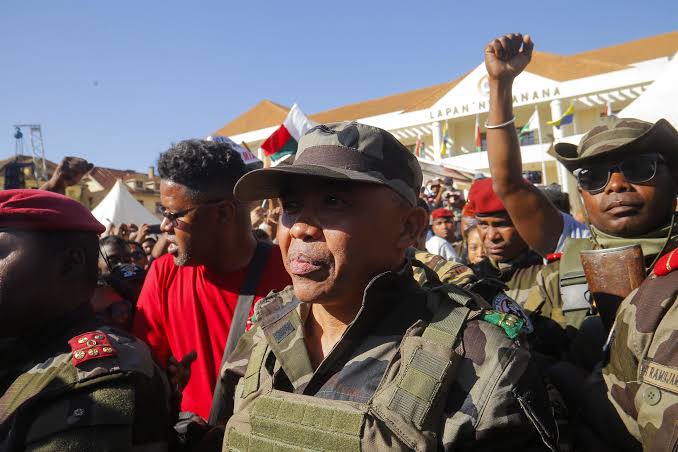
Madagascar Suspended from African Union After Military Colonel Seizes Power Amid Gen Z–Led Uprising

The African Union has suspended Madagascar following a dramatic military coup that toppled President Andry Rajoelina, throwing the Indian Ocean nation into yet another political crisis.
The AU announced late Monday that the suspension would remain in effect “until constitutional order is restored,” signaling international disapproval of the army’s intervention.
The coup was led by Colonel Michael Randrianirina, commander of an elite military unit and a former ally of Rajoelina. In a televised address, Randrianirina declared himself interim president, dissolving key state institutions while pledging that the military would oversee a transitional government lasting between 18 months and two years. “We are staying for at least 18 months, at most two years,” he told the Associated Press, promising eventual elections under “a new, fair constitution.”
The takeover follows weeks of Gen Z–driven protests under the banner #GenZMadagascar, which mobilized thousands of young citizens demanding better governance, employment opportunities, and access to basic services. The protests, largely peaceful at first, turned violent last weekend after police crackdowns left several injured.
Randrianirina claimed his intervention came at the request of the High Constitutional Court, alleging that President Rajoelina had fled the country “for safety reasons.” He also announced the appointment of a prime minister and the dissolution of the Senate and the Constitutional Court, retaining only the lower house of parliament to participate in the transition.
Rajoelina, who first came to power in 2009 through another military-backed coup and returned via elections in 2018, denounced the seizure as illegal, calling on the international community to reject what he described as “a betrayal of democracy.”
The unfolding events have drawn sharp international reactions. French President Emmanuel Macron denied reports that France helped Rajoelina flee the country, but expressed “deep concern” and reaffirmed Paris’s commitment to “the people of Madagascar and their democratic aspirations.”
Scenes from Antananarivo, the capital, revealed a divided public mood — some residents cheered soldiers as liberators, while others expressed fear of renewed instability. Analysts warn that the coup, though initially sparked by genuine youth frustration, has been “hijacked by the army,” potentially derailing the civilian movement’s democratic goals.
Madagascar’s history of political turmoil runs deep. Since gaining independence in 1960, the island nation has suffered multiple coups and transitions, each leaving its institutions weaker. Despite vast natural resources, Madagascar remains among the world’s poorest nations, with GDP per capita halved over the past decade and a corruption ranking of 140th globally, according to Transparency International.
As the African Union and international partners deliberate on sanctions and diplomatic mediation, the fate of Madagascar’s fragile democracy now hinges on whether Randrianirina’s junta will make good on its promise of a short transition — or follow the country’s familiar path of military rule cloaked in reformist rhetoric.
— BusterBlog.com | Global Affairs Desk


